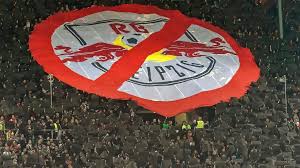June 17 – Bayer Leverkusen and Red Bull Leipzig could soon be among the German clubs forced to hand greater control to their supporters following an intervention from the country’s antitrust watchdog.
In a statement, the Federal Cartel Office called for stricter enforcement of the so-called “50+1” rule, which requires football clubs in Germany to maintain majority voting rights in the hands of their members. It allows for a degree of fan control and prevents an influx of foreign investors.
The regulator pointed to recent rulings by European courts, suggesting that long-standing exemptions from the “50+1 rule” granted to Leverkusen and VfL Wolfsburg are “no longer possible”. The watchdog said steps must be taken to bring these clubs’ professional operations under the control of their member associations.
Leverkusen was founded by pharmaceutical giant Bayer and Wolfsburg by car manufacturer Volkswagen. Their historic ties to these corporations have, until now, allowed them to operate outside the fan-ownership framework applied to the rest of the Bundesliga.
The regulator also insisted the German Football League must ensure all clubs offer supporters the opportunity to become full members with voting rights. While not named directly, this appears to target RB Leipzig, whose model has long drawn criticism.
Founded by energy drink manufacturer Red Bull in 2009, Leipzig remain a corporate outlier. As of last year, local media reported the club have just 23 voting members — a far cry from the thousands who hold such rights at “traditional” clubs.
Bayer Leverkusen issued a statement calling the Cartel Office’s position a “remarkable change of course”, adding that the club did not find the legal arguments “convincing” and would consider their options, including a possible challenge.
Hans-Joachim Watzke, speaking on behalf of the German Football League’s Executive Board, reaffirmed the league’s commitment to the 50+1 principle. He said: “The 50+1 rule is a fundamental part of German football. The DFL Executive Board will continue to advocate for the protection and continued existence of the rule.
“We will discuss the Federal Cartel Office’s assessment within the DFL Executive Board in detail. One thing is clear: the entire league association will have to find solutions to jointly safeguard and strengthen the regulation.”
Supporters argue the rule keeps clubs embedded in their local communities while still allowing for some commercial investment. The alliance “Fan Scenes of Germany” said:
“The DFL, the clubs, and their officials must now show their colours. The affected clubs must adapt their corporate form and organisation in accordance with the 50+1 rule in the short term or face withdrawal from organised football.”
The regulator’s stance marks a significant shift, but enforcing 50+1 compliance at all clubs could take years — setting the stage for a drawn-out battle between corporate interests and German football’s powerful fans.
Contact the writer of this story, Samindra Kunti, at moc.l1750183437labto1750183437ofdlr1750183437owedi1750183437sni@i1750183437tnuk.1750183437ardni1750183437mas1750183437

